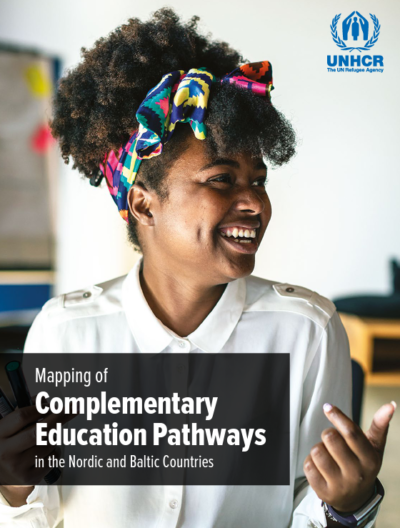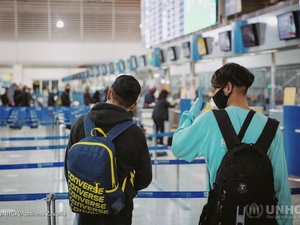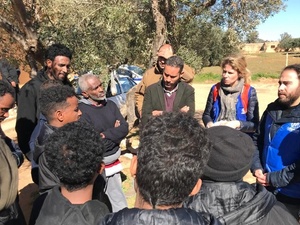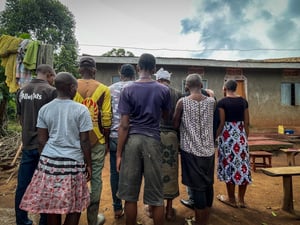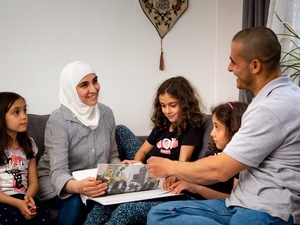UNHCR publishes mapping of Complementary Education Pathways in the Nordic and Baltic countries
UNHCR publishes mapping of Complementary Education Pathways in the Nordic and Baltic countries

Emma Iruvma Triphine, a DAFI sponsored student graduates in Lusaka. UNHCR/Deborah Kabemba
UNHCR, the UN Refugee Agency, has published the report, “Mapping of Complementary Education Pathways in the Nordic and Baltic Countries”. With this report, UNHCR aims to raise awareness of – and initiate dialogue on – education pathways for refugees living in third countries into the Nordic and Baltic countries.
Complementary education pathways are higher education opportunities which allow refugees in first countries of asylum to gain admittance to a third country in a safe, regulated and legal manner. This is complementary to resettlement and does not substitute states’ obligation to provide international protection to refugees.
In addition to an in-depth exploration of the concept of education pathways, the report provides information on the legal entry requirements for study purposes; the education programmes in the Nordic and Baltic countries available to refugees; and the major challenges facing refugees aiming to access education opportunities in third countries. The report also lists a number of recommendations to decision-makers and stakeholders in how to move forward in this area.
With the adoption of the Global Compact on Refugees in December 2018, the international community committed to strengthen the solidarity with refugees and the countries, hosting the majority of refugees – and this included expanding and improving the availability of complimentary pathways. UNHCR developed the Three-year Strategy on Resettlement and Complementary Pathways (2019-2021) which has been followed up with a Third-Country Solutions for Refugees: Roadmap 2030.
The full report “Mapping of Complementary Education Pathways in the Nordic and Baltic Countries” is available here


